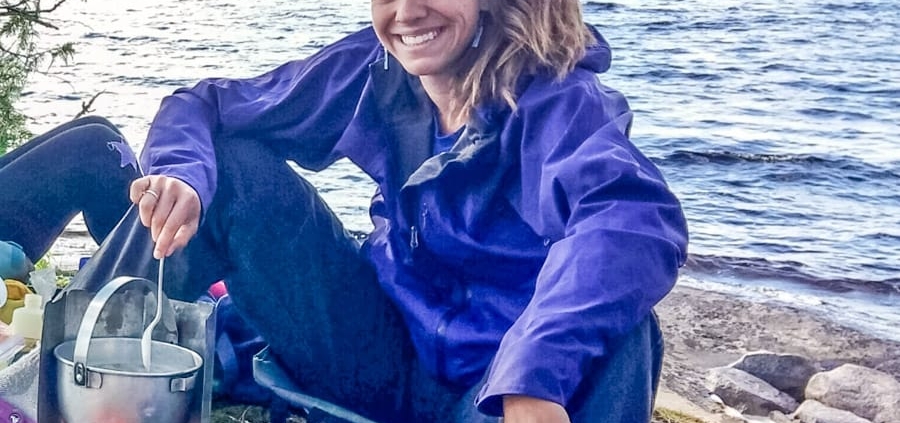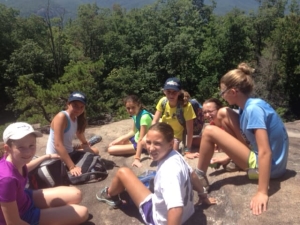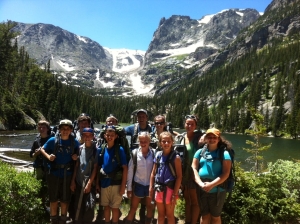Manifesto of a Soccer Dad – Adventure Treks vs. Organized Sports
I never thought I’d be a soccer dad… I always envisioned that weekends with my four kids would be spent hiking in the woods or mountain biking. Instead, Jane and I spend spring and fall weekends dividing and conquering as we figure out how to get our four kids to different soccer games in multiple locations. These parental challenges are not unique.
My kids love soccer and I applaud the many good things soccer brings. I like the friends my children have made through soccer and their families. I like the conditioning and emphasis on activity and health. I like the camaraderie, focus, and the teamwork my kids are learning. I love the fact that my girls look up to Tobin Heath and Heather O’Reilly and not Miley Cyrus or Rihanna.
But while soccer is a great activity, I worry about too much of a good thing. Finding a passion, working hard to attain skills and being able to measure one’s growth through competition is a great way to build the confidence that will serve one throughout life. But now, we feel pressure from coaches and other parents to focus on soccer exclusively. This past fall, the day that travel soccer season ended, we were encouraged to begin winter soccer which began three days later! (We passed)
Whether this quest for specialization is driven by parental dreams of producing an elite athlete or simply the lure of an elusive scholarship to beat the skyrocketing costs of college, I feel that this pressure to specialize in a single sport is ultimately not in my kids’ best interests.
The bar has been set ridiculously high for those who wish to excel. Globalization has created a world that rewards the specialists at the expense of the generalists. We can all quote Malcom Gladwell’s statistic that it takes at minimum 10,000 hours of practice to be great at anything. That bar keeps getting raised. The level of play in high school or even middle school sports has never been higher, but has anyone stopped to question if this is ultimately important? Is there any correlation between the actual caliber of play and the life lessons we can learn from sports?
I was surprised to realize that most of this pressure to specialize comes not from kids but instead from coaches or parents. In fact, less than 5% of kids actually drive the decision to specialize. (Ginsburg, Durant and Bakltzel) It’s often the athletes of average talent that are “asked” to specialize because “these kids are on the bubble.” Specialization creates an opportunity to make an elite team roster and play at a level that wouldn’t be accessible if they divided their time between multiple interests. A varsity roster helps differentiate kids in college admissions, and the “right college” gives kids an “edge” in an increasingly unequal world.
But is this giant “sorting hat” healthy?
When a youngster focuses on one sport year-round “it becomes a job, not a pastime.” By 9th grade, 70% of kids who started a sport at age 8 or younger have given the sport up because they were “bored, burned out or didn’t make the team.”
Besides the mental toll, specialization has a physical cost. Despite a warning from pediatricians that growing kids should cross train rather than specialize; overuse injuries are now responsible for nearly half of all sports injuries to middle school and high school students.
An exclusive focus on sports also takes away the opportunity to have special and spontaneous family days, the kind of activities that build memories and family camaraderie. It also affects the diversity of potential friends. Soccer kids are great but it’s also important to have friends with different interests and perspectives.
I don’t believe specializing is mentally healthy, either. I think our brains develop better when challenged in multiple areas with multiple activities. In fact, sports psychologists report that the most successful athletes are the kids who are “the most balanced and centered,” not the one’s who train the most or work the hardest (Ginsburg, Durant and Bakltzel) A study of elite Olympic competitors found that successful athletes grew up in an environment where fun was emphasized over winning until the teenage years. Personality qualities inherent and consistent in medal winning Olympians were ability to focus, self – confidence, optimism, resiliency, mental toughness, work ethic and of course sports intelligence and natural athleticism.
I don’t expect my kids to play soccer in the Olympics. As parents, we don’t have the commitment, even if our kids have the talent. Instead, I hope to be able to raise well rounded, balanced kids who will gain competencies in many different areas. If they get asked to do something like go sailing, play bocce ball or go to a symphony – I would hope they would have at least a working knowledge of each so they could be an eager participant. I want my kids to peak in their sixties not their late teens. I wouldn’t want them to look back at their high school sports career as the highlight of their life, but rather just one of many valuable growing experiences that helped prepare them for an engaged life filled with continuous growth.
Despite our family’s love for soccer and the inevitability that a future coach will attempt to gobble up their summers with lures of endless soccer programs and practices, one thing my kids will never sacrifice is summer camp. I know that my kids have so much fun and enjoy their “Camp” friendships so much that they wouldn’t easily sacrifice Adventure Treks for soccer. Summer programs also provide a much needed mental break from the pressures of daily life. 2013 research by the American Psychological Association shows that teens are now more stressed than adults, and Adventure Treks is just one way that we can help to reverse that trend.
At Adventure Treks, campers acquire skills in several activities. These small successes lead to bigger successes. These successes build confidence and self – efficacy. These are the same traits found in successful athletes. At summer camp, one can generalize rather than specialize and learn life and activity skills they will be able to use into old age. While instructors don’t have names like Cristiano Ronaldo or Hope Solo, they are realistic (and larger than life!) role models who engage in two-way conversations. Sure I love soccer, but I know my kids learn more about teamwork, character and leadership at Adventure Treks than they do on the playing field.
Every summer I see kids turning away from Adventure Treks and other great camps because of sports commitments. These are usually good athletes. They are frequently pressured by their coach and worried that if they don’t devote their summer to the same sport they practice the rest of the year, they will fall behind and miss out. It’s a decision real in the moment but usually regretted in retrospect. Sure sport has lots to teach, but so does Adventure Treks and summer camp in general. In the sports vs. Camp equation ultimately it’s about balance. We hope the concept of becoming a Renaissance person will again make a resurgence, after all we want our kids to peak in their 60s!
References:
1) Whose Game is it, Anyway? – Ginsburg, Durant and Bakltzel
2) The Most Expensive Game in Town: The Rising Cost of Youth Sports and the Toll on Today’s Families – Mark Hyman
3) Psychological Characteristics and Their Development in Olympic Champions – Dan~El Gould, Kristen Dieffenbach And Aaron Moffett




